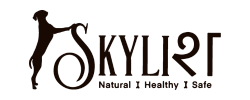As pet parents, we’re conditioned to believe that if something is “all-natural,” it must automatically be safe for our dogs. After all, natural is always better… right?
But here’s the uncomfortable truth: natural doesn’t always mean risk-free.
In an unregulated pet care industry like India’s, where standards of sourcing and processing vary widely, the risks multiply. Add to this our tropical climate — warm, humid, and ideal for bacterial growth — and the chances of contamination in natural treats are much higher than we’d like to admit.
Let’s break down some of the most common “natural” chews and why they deserve a second thought.
1. Pizzles (Bully Sticks)
Popular for being protein-rich and long-lasting, but:
- They are made from the penis of a bull — an organ, like intestines, are naturally prone to contamination. In climates like ours, where storage and transport hygiene can’t always be guaranteed, the bacterial risk increases significantly.
- Very calorie-dense, which can quietly contribute to obesity in urban pets with limited exercise.
2. Dehydrated Meaty / Non-Meaty Bones
They promise enrichment but often deliver problems:
- Prolonged chewing introduces moisture, making them a breeding ground for bacteria.
-
Hard textures risk tooth fractures and jaw injuries.
-
Splinters can lodge in the digestive tract or cause choking, particularly in large breeds.
-
In warm, humid regions, poor storage only increases bacterial load.
3. Raw Bones
Marketed as “ancestral” or “species-appropriate,” but the risks are real:
- Known carriers of E. coli, Salmonella, and other pathogens, which thrive in tropical conditions.
-
Dental damage is common, leading to painful fractures or costly extractions.
- For senior dogs with weaker jaws, the risks are even higher.
-
Access to fresh, safe, hygienically handled meat is limited in many tier 2 and 3 towns, making it difficult to ensure microbiological safety.
4. Fur & Skin Rolls
Often sold as “primitive” chews, but:
- Skin infections beneath untreated hides are not always visible.
- Since skin and fur are exposed to open air and water during the animal’s life, they can accumulate dust, chemicals, or pathogens that may not rinse out completely, making them high risk.
- Lack of standardization in processing makes them highly prone to contamination.
-
With limited cold storage infrastructure in many regions, spoilage is a common risk.
Why Science Matters in Choosing Treats
This is where science plays an irreplaceable role.
-
Lab Testing & Certification: Meat-based chews and jerky treats are safest only when they are certified for nutritional balance and microbial safety by food testing laboratories. In an industry that’s still largely unregulated, this step is often skipped.
-
Research Over Marketing: Reading researched, published papers on the risks of raw diets and unprocessed bones gives you clarity that Google searches can’t. Search results are often influenced by paid promotions — designed to sell, not to inform.
-
India’s Unique Challenge: Unlike some Western countries where cold chains are robust, the Indian supply chain and climate amplify risks. In smaller towns, the accessibility of fresh, pathogen-free meat is questionable, making jerky treats and raw diets even more unsafe.
The Smarter Choice for Indian Pet Parents
When it comes to treats, natural is not enough. What matters is safe, species-appropriate, and science-backed.
Look for:
-
Single-ingredient treats from transparent, reputable brands
-
Products that undergo lab testing for safety
-
Storage-friendly options that remain safe in our climate
-
Alternatives to raw meat that provide enrichment without the bacterial risks
-
Always supervise your dog during chew time
Being a smart pet parent isn’t about following every trend. It’s about understanding the unique risks of our environment and making choices that keep your dog safe.
In a country where the pet food industry is still finding its footing, and where climate and infrastructure challenges are real, it’s wiser to lean toward certified, tested, and safer alternatives rather than raw meats, bones, or jerky treats.
Because at the end of the day, “natural” is just a word. Safety is what truly matters.
----------------------------------
Rachna, founder of Skylish, is a canine wellness guide grounded in science-based nutrition and fear-free dog care. She champions fresh feeding while supporting parents who choose commercial diets—always with the dog’s well-being at the core. Rachna also offers pro bono consultations, creating a safe, judgment-free space for pet parents to seek guidance and voice concerns.

